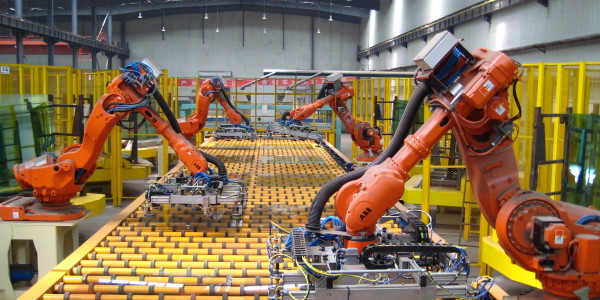Automation, not Trade, is the Main Cause of Factory Job Losses
It doesn’t matter what President Trump says. Bad trade deals are not the major source of job losses in the U.S. manufacturing sector.
According to an Associated Press article written by Paul Wiseman in November, America has lost more than 7 million factory jobs since manufacturing employment peaked in 1979. Yet factory production during the past 37 years has more than doubled, due mostly to automation.

Wiseman says that China did cause the loss of U.S. jobs after it gained easier access to the U.S. market when it joined the World Trade Organization in 2001, especially in labor intensive industries such as textiles and furniture. However, the vast majority of lost jobs–88%–were caused by the implementation of robotics and other forms of automation.
This is no surprise to anyone working at TSI Solutions. Our mission is to make our manufacturing customers and machine builders more productive and profitable by helping them improve the level and quality of automation in their processes and on their equipment. If we don’t do it, our competition will. Same goes for our customers.
One piece of good news is that automation is a boon to some American workers: the implementation of robotics, combined with higher wages in China and other developing nations, has reduced the incentive for American companies to move factories offshore in search of low-wage labor.
One of our customers in the Atlanta area is hard at work developing machinery that will automate the cut-and-sew industry. This has been extremely difficult to accomplish because textiles are pliable and difficult to grip. If they are successful, the jobs lost across Georgia and the Southeast in the 1980’s and 1990’s will soon be lost in countries like Mexico, Vietnam and India. But as that automation equipment is used to make clothing in the U.S., many jobs will be regained. They just won’t be blue collar jobs.

